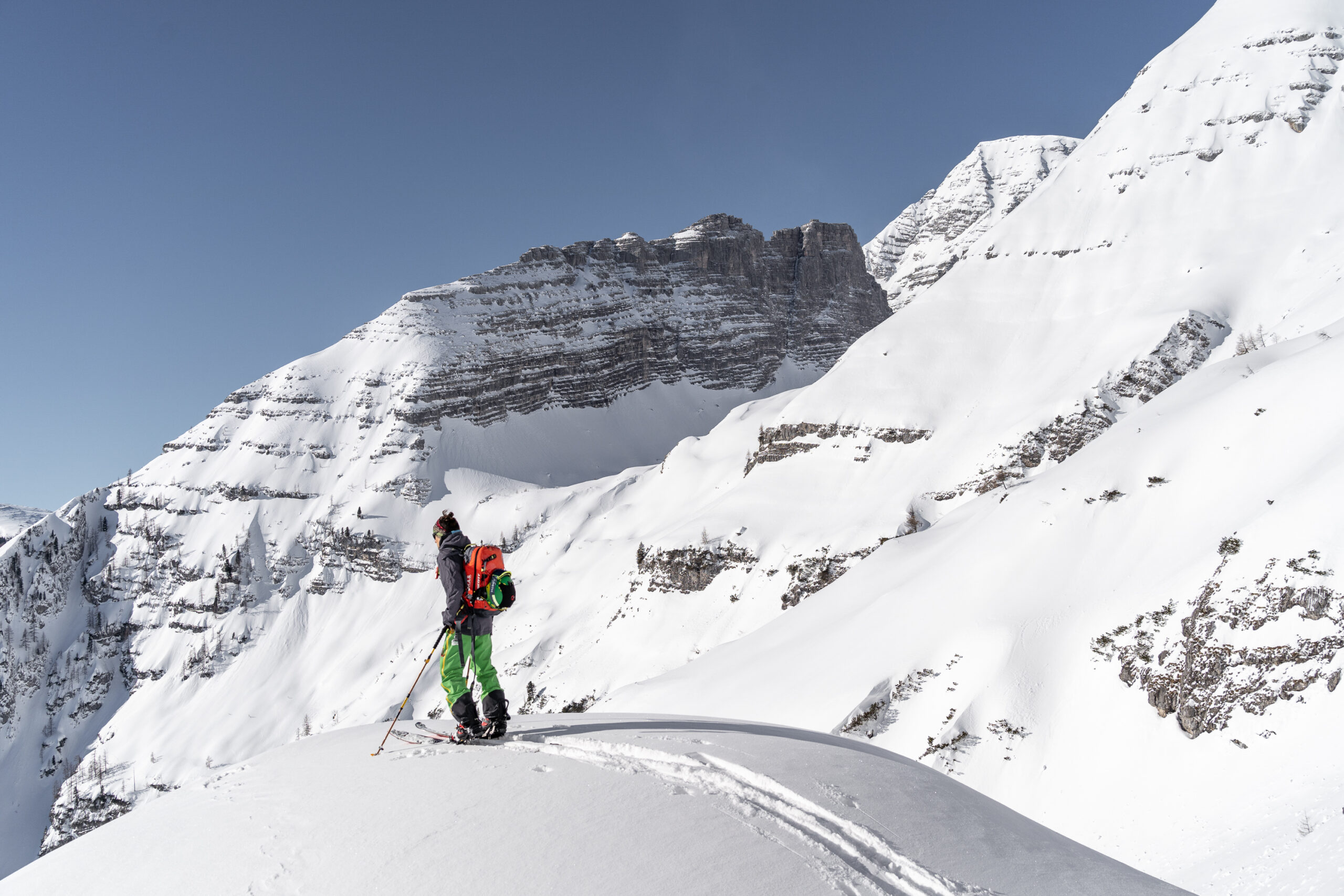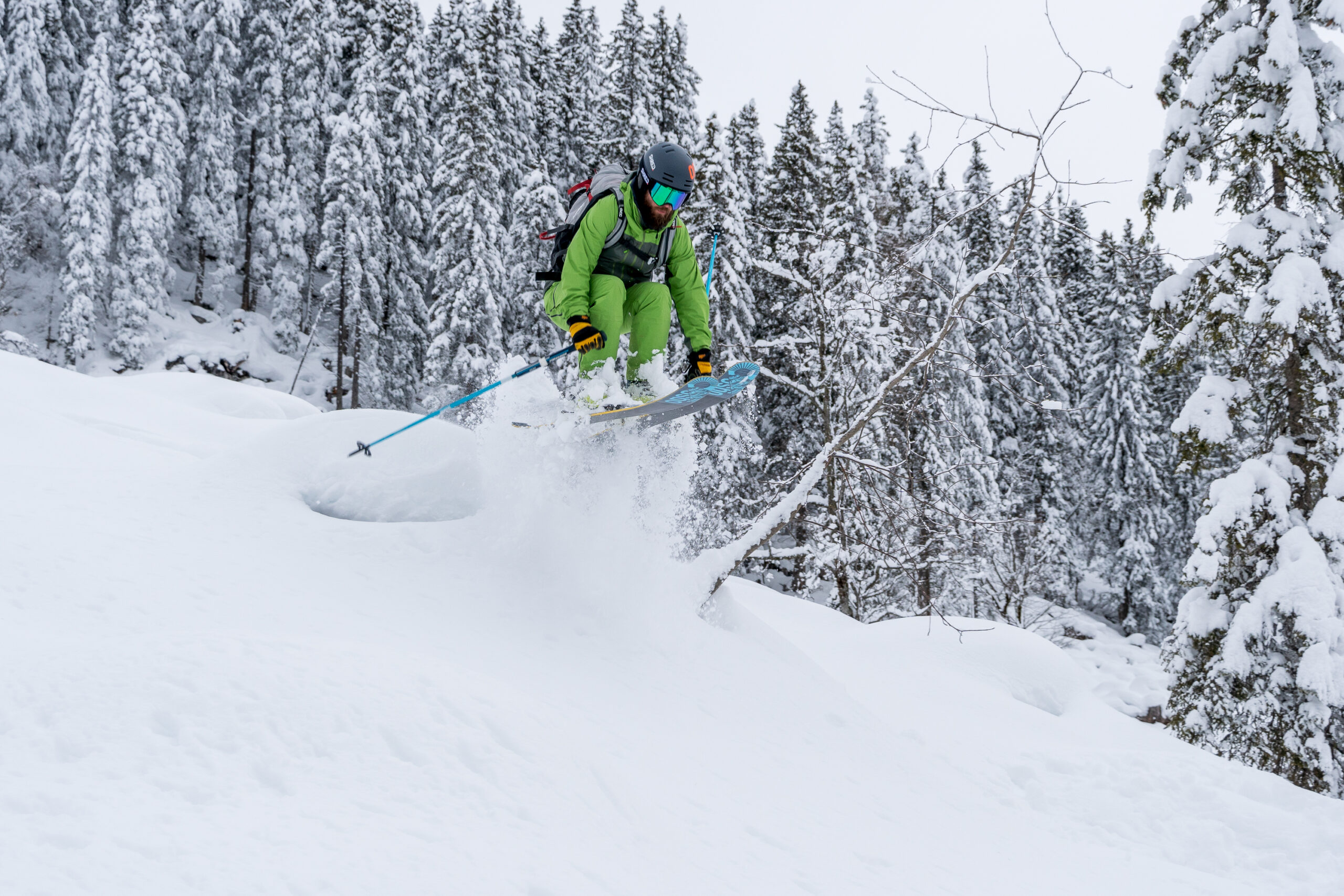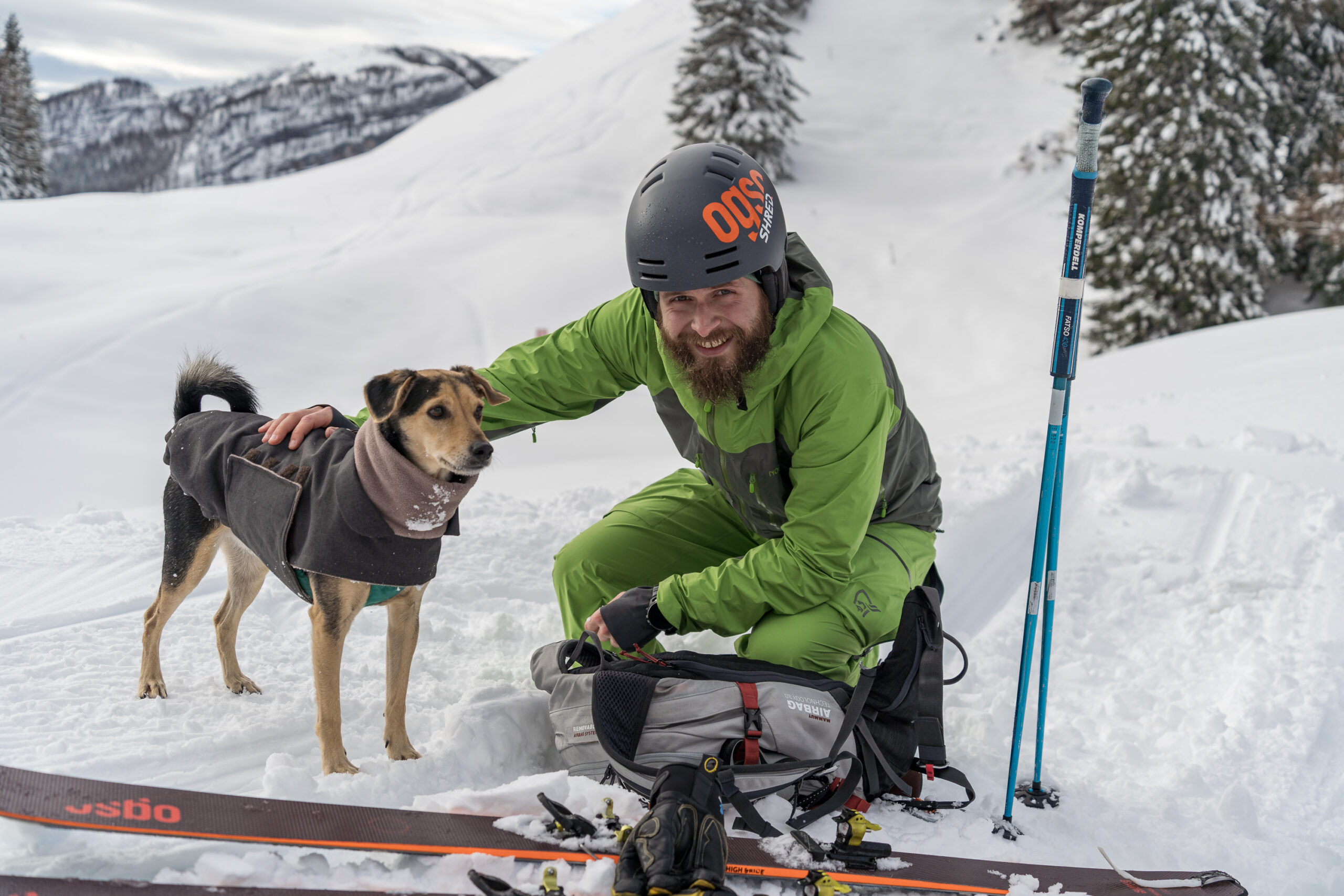Why do we ski? And why do we take risks?
It’s a rather controversial thing to do – going out into the backcountry, skiing or riding lines that are dangerous. How do we justify exposing ourselves to the mountains, to an environment where people have died? If I think about it, I can’t in any rational way. But why do we choose to go out week after week – day after day?
There is no “one general answer” to this. It is much more complicated and I am for sure not able to satisfy everyone with this short article and it shouldn’t be seen as a guide on how to approach the backcountry and the alpine.
There are a lot of different quotes throughout history of mountaineering, but there is one specific that stood out to me.
Paul Preuss (1886 – 1913) a brilliant alpinist had a few very philosophical approaches to going out into the mountains. My favorite is “Das Können ist des Dürfens Maß” – the ability is the measure of justification.
It is not about skiing but I think it sums up a lot of factors that apply to skiing as well. The better you are the more you can justify doing – being a better climber allows you to climb harder routes while staying in your comfort zone. Being a better skier means you can ski steeper lines while staying in your comfort zone. It’s as simple as complicated I guess – your skill defines what you can justify doing.
But what happens when you reach a level where getting better implies stepping out of your comfort zone?
I think that’s the crux – knowing where my comfort zone is, knowing how I feel when I reach that red line and how I handle myself while stepping over it if necessary. But without trial you won’t find out. Take small steps because there is only trial and no error – error in some situations could end fatal.
Even if you have the skills, there are still the objective risks – avalanches, rockfall and bad weather.
You can’t change these but I think you can apply the quote above to these topics as well. There is a lot to learn and a lot to know about these. For example you can learn a lot about avalanches, trying to predict them, analyze the snowpack, where it is dangerous and where not and how to adapt to those situations. Training in the case of an avalanche accident is crucial, it definitely gives you a better feeling, knowing that your group is well trained and you can step out of your comfort zone a little.
There are a lot of negative factors and in a rational way I must confess, I shouldn’t do what I do. But why am I skiing?
There are a lot of people saying it’s to arc the perfect turn – and yes I can support that, but after a day in the powder and one good turn after the other , for me that’s not enough.
And yes skiing is much more than just arcing turns down a mountain, it’s a lifestyle – a lifestyle of meticulous planning especially in an alpine environment.
Reinhold Messner once said : “Wir gehen freiwillig dorthin, wo wir umkommen könnten, um nicht umzukommen.” – we willingly go where we could die, not to die there.
And I guess that sums it up pretty much – I feel the most alive in places where it is dangerous. Total concentration and focus on what you are doing, what your next steps or turns on skis are. Having control over yourself, skills and feelings is a feeling in itself that can’t be described really.
A few weeks ago after we climbed and skied down a steep couloir a friend said: “now we got the adrenaline rush, that lasts for a week reminding us why we do that.”
It is quite ambiguous that the quote above also implies that we can’t live without it. In some sense it means we go there because we need it, we need that rush and are willing to go there, because we couldn’t live without it. Do I have fear in some moments or during some climbs or descends? Definitely.
I think fear is necessary to keep you aware of hazards on the way – necessary to keep you alive, that’s what it’s for.
It is this emotion, when you can’t hold it during a fast descent and you have to scream of joy and fear. That moment when you have overcome your fear because you know you have the skills to ski a line.
That moment when you can let your concentration fade after the descent. That moment of joy, overcoming fear and fading tension and freedom, that’s I guess why. Is it addictive? Definitely!






